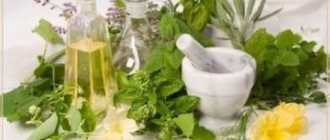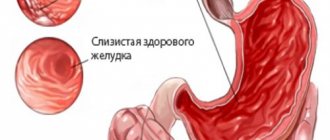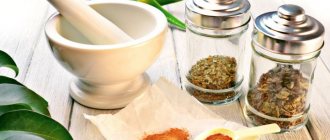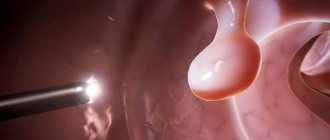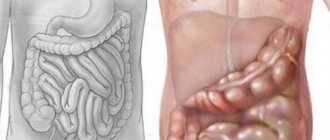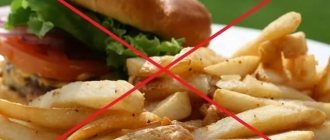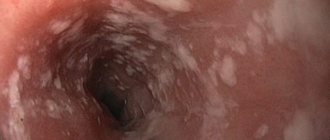Erosive gastritis is one of those diseases that, even in the absence of symptoms, can lead to dangerous complications. The pathology occurs with the formation of erosions on the gastric mucosa. Drugs should be selected only by a doctor, otherwise the risk of complications increases. The danger of the pathology is that it occurs more often with increased acidity. That is why it is considered a precursor to such a dangerous complication as an ulcerative process.
Erosive gastritis, if left untreated, can develop into a stomach ulcer
Accordingly, treatment will be carried out according to the same scheme as the treatment of gastric ulcer. In addition, the pathology can lead to prolonged bleeding and anemia.
- 1 Why treat inflammation
- 2 Drug therapy
- 3 Treatment regimen for inflammation
- 4 Traditional methods
Key objectives of drug treatment
Any treatment regimen for erosive gastritis is selected by a competent specialist. He prescribes medications aimed at eliminating the disease and the causes of the pathology. If you follow them impeccably, lead a healthy lifestyle and follow a diet, it is quite possible to cure even the erosive form.
So, what problems does drug treatment of erosive gastritis solve:
- Reduces the synthesis of gastric juice.
- Improves digestion processes.
- Normalizes motor skills.
- Reduces acid concentration in the body.
- Eliminates pathogenic microflora. In particular, Helicobacter pylori infection.
- Improves blood circulation processes.
- Eliminates destructive factors.
- Promotes the regeneration of erosions, prevents the formation of new wounds.
As soon as the exact diagnosis is known, the gastroenterologist prescribes treatment. It is always comprehensive and includes the following stages:
- Eliminate the cause that caused the disease. For example, when a disease is caused by the bacterium Helicobacter pylori, it cannot be cured without antibiotics. It is important to complete the full course of treatment and not stop therapy prematurely. Otherwise, the pathogenic environment will become active again.
- Restore normal acidity. The acid contained in the gastric juice has an extremely aggressive effect on the inflamed mucosa. What if there is erosion on it? The situation is getting worse. Antacids come to the rescue. Each drug has its own principle of action, so only a doctor can prescribe them.
- Restore the integrity of the epithelium. The doctor will prescribe special medications that increase the flow of oxygen to the affected tissues. Cell regeneration will accelerate.
Treatment is selected in such a way as to stop the process of further formation of erosions, reduce the concentration of acid, and achieve complete recovery.
Features of the disease, symptoms
The development of stomach pathology is evidenced by many symptoms, among which it is difficult not to notice severe pain localized in the upper abdomen. With this gastrointestinal disease, the general condition of the patient noticeably worsens. The following symptoms indicate that acute erosive gastritis is developing:
- Feeling of heaviness in the stomach. It begins to bother the patient after eating any food.
- Stomach ache.
- Heartburn.
- Vomiting blood.
- Dyspeptic disorders (rotten belching, stool upset, dryness, bitterness in the mouth, sour belching).
Such vivid symptoms of the disease usually cause injuries to the digestive organs, severe burns of the mucous membrane, which could occur due to the ingestion of chemicals or poor-quality food.
Stomach disease occurs:
- acute (injury to the mucous membrane is caused by exposure to an aggressive environment: alkali, acid, drugs, chemicals, poor quality food);
- chronic (provoked by a violation of secretory processes, which can occur due to disruptions in the functioning of the body, a violation of the nature of nutrition. The secretion of gastric juice increases).
In pathology, experts distinguish several varieties:
- antral (characterized by bloating, abdominal pain, dyspepsia, nausea);
- hemorrhagic (it is characterized by the appearance of bleeding from erosions that occur on the mucous membrane);
- gastritis reflux (characterized by weight loss, a feeling of heaviness, vomiting bile, dyspepsia, bloating, dull, aching pain after eating, nausea, bad taste in the mouth).
The symptoms of these varieties are similar, but as we have indicated, they have some differences. It is advisable to treat them immediately after detection, otherwise they threaten to develop into a peptic ulcer, and possibly into a cancerous state.
Gastric disease with high/low acidity is also divided. With low acidity, inflammation of the mucous membrane is caused by a lack of gastric secretion. The occurrence of pathology with high acidity is provoked by poor quality food, medication, and metabolic disorders.
The symptoms of the above types of disease are similar; only a specialist can distinguish them by conducting the necessary diagnostic tests. The main difference between gastritis with high acidity and low acidity is their drug treatment.
Painkillers
The mucous surface of the stomach is affected by acidic contents and other factors. The resulting inflammation and muscle spasms are two main causes of pain. For gastritis and peptic ulcers, 2 groups of drugs are used:
- Antispasmodic. These include no-shpu and platiphylline. The substances are distributed in the form of tablets or injections. The second option is prescribed when the patient is in the hospital. These are potent drugs, so they can only be used as prescribed by a doctor.
- Antacids. Since pain is associated with the formation of wounds and mucosal defects, treatment of erosive gastritis is aimed at their healing. The composition of the preparations includes magnesium and aluminum compounds. They not only envelop the mucous membranes, but also enhance regenerative processes and eliminate dyspepsia. If you regularly take Maalox, Rennie and Almagel, the acid concentration returns to normal.
Natural Medicines
In the treatment of gastritis complicated by erosive lesions, the objectives of alternative medicine are:
- relief of symptoms;
- relief of inflammation of the stomach lining;
- healing of damage;
- restoration of the mucosal epithelium.
To achieve these goals, the most effective and proven methods are used.
Herbal medicine
Effective treatment of gastric erosion with folk remedies is impossible without herbal medicine. A special selection of herbs with anti-inflammatory, wound-healing, restorative properties can significantly alleviate symptoms and speed up the healing process.
Complex herbal tea
Herbs:
- plantain (leaves);
- yarrow;
- flax seeds;
- St. John's wort;
- peppermint;
- sage;
- horsetail.
Method of preparation and rules of administration:
- Mix all ingredients in equal parts.
- 1 tbsp. l. pour a glass of boiling water over the mixture and leave for 3 hours.
- Drink the infusion 10 minutes before meals.
Herbal tea - effective help for gastritis
Plantain
The plant has pronounced wound-healing and anti-inflammatory properties, so it can quickly cure gastritis and get rid of erosions.
Ingredients:
- dried leaves (15 g);
- boiling water (250 ml).
Preparation and reception:
- Plantain leaves are brewed with boiling water and left for 1 hour.
- The infusion is consumed before meals, 1/3 cup.
Rhubarb root
Rhubarb root can effectively treat inflammation and erosive lesions of the stomach with low acidity, because it has an anti-inflammatory effect and the ability to stimulate the production of gastric juice.
You need to take the rhizome of the plant, chop it and dry it. Rhubarb is harvested in the fall (October, November), dried in the open for 4 days, after which the root is cooked in the oven at a temperature of no more than 50°C.
It is necessary to consume 0.1 g of dry root with a small amount of water.
Linen
For the effective treatment of inflamed and eroded gastric mucosa, flax seed is actively used. The huge amount of useful substances contained in the product allows the seeds to be used as an analgesic, wound-healing, disinfectant, and regenerating agent.
One of the most popular remedies for stomach erosion is flax seed.
Flaxseed effectively heals damage, relieves inflammation, and restores the epithelium. The product is actively used not only as a natural medicine, but also in therapeutic nutrition (a specially developed diet for erosive gastritis).
The course of admission is 2 months.
Ingredients for seed decoction:
- flax seeds (10 g);
- water (1 l).
Preparation method and dosage regimen:
- To boil water.
- Pour freshly boiled water over flaxseeds.
- Close the container with the liquid with a lid and place overnight in a warm, dark place.
- In the morning, strain the infusion.
- Take ½ cup 15 minutes before meals.
Note! Any products based on flax grains are effective for erosive lesions of the stomach, regardless of the level of acidity (high, low or normal).
Bee products
Honey and propolis have pronounced antiseptic, anti-inflammatory, and analgesic characteristics. The products contain an extensive complex of vitamins and minerals.
It is recommended to consume 1 tbsp daily. spoon of honey on an empty stomach.
Another beekeeping product, propolis, has proven its effectiveness.
Ingredients for preparing the product:
- propolis tincture (10%);
- warm water (50ml).
The strongest natural antibiotic is honey
- Dilute 15 drops of tincture in 50 ml of water.
- Take three times a day (no earlier than 1.5 hours before each meal).
Wheat
A common healing method for getting rid of erosive lesions of the stomach is the use of wheat sprouts. Sprouted wheat contains a lot of active substances that have beneficial effects.
The product will be of particular benefit to women - taking it will not only help get rid of erosion of the gastric mucosa, but also rejuvenate the female body, lose weight without special diets, and improve the condition of the skin and hair.
It’s easy to get sprouts at home, for this you need to take:
- 2/3 cup wheat grains;
- 100 ml of purified unboiled water;
- sunflower oil (1 tbsp.).
Stages of germination and administration of the product:
- Rinse the grains with running water to remove debris and unusable seeds.
- Place wheat raw materials in a flat container and fill with water. Soaking lasts 8 hours.
- After the designated time, drain the water and rinse the seeds.
- Place the washed raw materials back into the container and cover the top with soaked gauze folded in several layers.
- Sprouts should appear in 9-10 hours.
- Grind the sprouted seeds in a blender, mix with 1 tbsp. l. unrefined sunflower oil.
- Take 1 tbsp. l. before eating.
Taking wheat germ helps in the treatment of stomach erosion
Note! Sprouts up to 1 mm in length have medicinal properties. The finished product can be stored in the refrigerator for no more than 2 days.
Vegetable oils
A positive result will be achieved by consuming oils of plant origin: sea buckthorn, flaxseed.
It is recommended to consume 1 tsp of flaxseed oil on an empty stomach. You can drink it with warm water or tea.
For erosive gastritis, you need to take 1 tbsp of sea buckthorn oil. l. no earlier than 1 hour before eating.
Oils soothe and protect inflamed gastric walls and heal erosions. The treatment course is 3 months.
Secretory suppressors
This category includes medications for erosive gastritis that reduce acid synthesis. Divided into 3 groups:
- Atropine-like drugs, which include belladonna extract. For example, bellasthesin, bellalgin. Reduces acid production and relieves pain well. But due to the huge number of side effects, doctors rarely prescribe them.
- Antisecretory substances. They reduce the synthesis of not only hydrochloric acid, but also pepsin, one of the gastric enzymes. But mucus production, on the contrary, increases. Antisecretory drugs include ranitidine, famotidine and quamatel.
- Proton pump inhibitors. Unlike the first two groups, the principle of action of inhibitor drugs is somewhat different. They do not just reduce the acidic reaction of the contents - the drugs work at the molecular level. Inhibitors include omez and omeprazole, pantoprazole, rabeprazole.
The third group of drugs has received the greatest recognition from doctors and is prescribed more often than others. It works with maximum efficiency, the likelihood of side effects is minimized. Even after a single use, acidity levels begin to decrease. The result lasts throughout the day.
Eliminating Helicobacter pylori infection
The pain is relieved, and the level of acid in the stomach is also restored. It remains to eliminate one of the main causes of erosive gastritis - Helicobacter pylori. Previously, it was believed that stressful situations and poor nutrition could trigger the disease. However, they only start the process. Pathogenic microorganisms are actively multiplying. And since they feed on epithelial cells, the gastric mucosa is destroyed. This provokes inflammation. Competent antibacterial therapy will help cope with the disease.
According to international treatment protocols, antibiotics are used to treat gastritis. The Helicobacter bacterium is most sensitive to drugs such as amoxicillin and azithromycin, clarithromycin, rifampicin and some others. Doctors often prescribe metronidazole and furazolidone. Antimicrobial drugs are taken together with inhibitors - omez or pantoprazole. In an acidic environment, the bacterium is most active, so high gastric secretion must be suppressed.
Another unique substance called De-Nol can increase the effectiveness of treatment. It contains bismuth compounds that protect the affected areas. Before treating erosive gastritis of the stomach, it is worth remembering the nature of the disease. Wounds and deep erosions appear in the stomach, which provoke painful sensations. Once in the stomach, De-Nol covers the affected areas with a special film. This is a kind of shield against the harmful effects of acid and Helicobacter pylori infection.
How to treat erosive gastritis?
Erosive damage to the gastric mucosa gradually leads to the destruction of its walls and the formation of ulcers. When it is perforated, peritonitis develops. If erosions bleed, large blood losses cause anemia. Chronic inflammation spreads to the pancreas and duodenum.
Gastritis is often complicated by pancreatitis, duodenitis, and enterocolitis. Refluxesophagitis develops, in which the contents of the stomach are thrown into the esophagus and its walls are affected. The most serious consequence of erosive gastritis is stomach cancer, which poses a threat to the patient’s life.
To avoid serious complications, treatment for this disease must be started as soon as possible.
The most important thing is to immediately eliminate the impact of all negative factors that can lead to damage to the mucous membrane. Usually this is taking certain antibiotics, hormonal drugs, NSAIDs, poor diet, and drinking alcoholic beverages. This form of gastritis is most often treated with medications, but an important stage of therapy should be changes in diet and lifestyle.
To get rid of erosive or atrophic gastritis, diet and medication treatment must be combined. And after the acute stage subsides, you can add traditional methods. Proper treatment of gastritis is a treatment regimen and medications that are selected by a specialist individually for each patient. The prognosis for recovery is good if complex treatment is started on time and the patient follows all the doctor’s recommendations.
What drugs irritate the mucous membrane?
Some medications, especially with long-term use, cause irritation. Cases where gastritis occurs after taking medications are becoming more common. First of all, you need to be careful with aspirin, nimesulide, and ibuprofen. In general, most painkillers hit the stomach hard. Sometimes it is better to endure the pain, if it is not too intense, than to take 2-3 tablets at a time.
Hormonal substances also pose a certain danger. These include dexamethasone and medrol. If the patient has to take them for a long time, doctors supplement the treatment regimen with proton pump inhibitors. The mucous membranes will be protected.
Effective treatment regimens
To achieve a complete recovery, it is not enough to simply take a pill and rest for 1 day. Erosive gastritis is a difficult to treat disease. However, it is quite possible to forget about stomach pain and improve your quality of life. To achieve the desired effect, doctors prescribe several drugs. If necessary, adjust the dosage. Therefore, the answer to the question of how to cure erosive gastritis always depends on the severity of the disease and the manifestation of certain signs.
Most likely, your treatment regimen will include the following medications:
- Increasing tone, enhancing contraction of the gastric walls. The main effect of such drugs is aimed at normalizing gastric motility. If there are no contraindications, gastroenterologists prescribe cerucal. The substance is quite strong and can affect the nervous system. Motilium is considered safer; the recommended dosage for an adult is 0.25 mg per 1 kg of weight.
- Protecting mucous membranes. How do the drugs work? They increase the synthesis of mucus, which envelops the tissues and protects them. Preference is given to biogastron and liquitron. Metacil and Actovegin are considered good stimulators of regeneration processes. In each case, the dosage is individual. These substances are extremely necessary when the disease is accompanied by a surge in acidity.
- De-Nol. This drug has already been mentioned above. It is required for inflammatory lesions, when gastric secretion becomes more intense. The medicine not only forms a protective film on the surface of wounds and erosions. It speeds up recovery and has a detrimental effect on bacteria. As a rule, De-Nol is taken one tablet in the morning and evening. The course of treatment is 1 – 1.5 months.
- Sucralfate. The main active ingredient is aluminum. It improves food digestion and forms a special protective foam in the affected area. The classic dosage is 3-4 times a day, 1.5 g. In parallel with sucralfate, drugs that eliminate high acidity are prescribed.
I would like to warn patients against self-medication. Firstly, each case is individual, and only a doctor has the right to decide on the choice of a particular drug. Secondly, the dosage is different. At best, the drug will be ineffective, at worst it will cause even more harm due to side effects. To cope with inflammation and achieve stable remission, entrust the choice of therapy to a good gastroenterologist.
Why treat inflammation
The first thing that indicates inflammation and forces patients to see doctors is pain. It does not allow you to eat your favorite foods, does not allow you to do physical work, and exhausts a person. In addition to pain, patients are worried about nausea, and exacerbation can occur with an increase in temperature. At the same time, following a diet does not always give results, since it is important to speed up the regeneration processes and restore the mucous membrane. If these measures are not taken, the risk of developing the following complications increases:
- ulcerative process;
- spread of erosions to the mucous membrane of the duodenum or esophagus;
- perforation of the stomach wall;
- tissue penetration.
Acute erosive gastritis is manifested by pain in the stomach
The main danger is that erosive gastritis may not bother the patient for a long time due to the specific localization of erosions. The acute period is characterized by mild pain. In order to cure pathology, several methods should be used at once. Naturally, the acute period requires the prescription of drugs, but outside of a relapse, you can use folk remedies. But in any case, treatment will take a long time to completely restore the gastric mucosa.
How to eat with stomach erosion?
It is unlikely that the prescribed treatment for gastritis will be effective without an additional diet. Normalizing your diet will help you feel good. Dishes seasoned with black pepper and hot ketchup, fatty foods, fried meat, smoked fish - all this sounds very tasty and appetizing. But alas, it is prohibited for gastritis.
You will also have to give up rough food. The basis of the diet should be porridge and vegetable purees. If it’s meat, then minced. If there are soups, then be sure to use water. They eat modest portions, but often - 4-5 times a day. Maintain temperature conditions. Cold or freshly cooked food that has not had time to cool should be avoided. Homemade cottage cheese is included in the menu. It is rubbed through a sieve to make it better absorbed.
What does the ideal breakfast for a patient suffering from erosive gastritis look like? It can be a steam omelette or 2 soft-boiled eggs, viscous porridge, jelly. The latter is able to envelop the stomach and protect the mucous membrane from further destruction. Fermented milk products in small quantities are completely acceptable.
Description
Erosive gastritis refers to a type of inflammatory process in the gastric mucosa, and differs from other types of disease by the appearance of ulcerative formations on it. In medicine, the disease is often called bulbitis.
Like all gastritis, bulbitis can occur in two forms: acute and chronic, while in the first case the course of the disease will be rapid and painful, especially if it occurs against a background of stress. Chronic gastritis develops gradually and for a long time may not cause any unpleasant symptoms in the patient. In this case, the disease is often detected with significant damage to the stomach tissue.
Ulcerative lesions of the mucous membrane can be either single or multiple. At the initial stage of the disease, the damage is superficial and small in size, but if left untreated, it gradually increases and develops into deep erosion.
Worth knowing! Erosive gastritis is often called a stressful disease, since exacerbation of the chronic form of the disease or its primary development often occurs suddenly against the background of severe depressive diseases, psychological trauma, prolonged overexertion and nervous exhaustion.
A dangerous complication of erosive gastritis is the high probability of gastric bleeding, and in this case the erosive-hemorrhagic form of the disease is diagnosed. Large-sized deep erosions begin to bleed, most often those located in the area of the lesser curvature of the stomach, where the largest vessels pass.
Among all types of gastritis, erosive is the most complex disease that requires long-term complex treatment.
